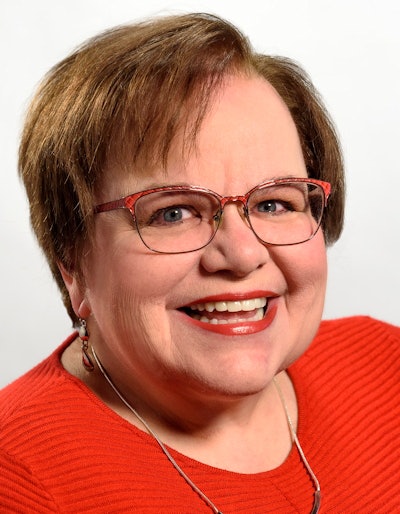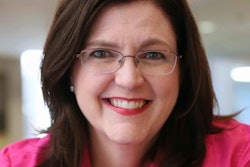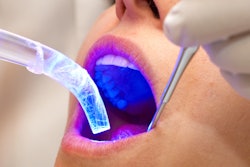
Last week, I had the opportunity to talk to James Anderson, DMD, the CEO and founder of eAssist Dental Solutions, and Lois Banta, who was recently hired as the company's chief operations officer. During our wide-ranging Q&A, we spoke about several practice management topics as dental practices prepare for the fourth quarter of 2020.
Kevin Henry: Where do you see dentistry heading for the rest of this year?
Dr. Anderson: I believe that dentistry is recession-proof. What we saw in 2008 proved that we, as an industry, could stay viable, even in tough economic times. I also believe the biggest test we're ever going to have as an industry is this crisis. Some are saying we might see another depression. I don't know, but I hope that's not true for all of us.
 James Anderson, DMD.
James Anderson, DMD.Yes, dental offices are struggling, and they have let people go. I know some of our clients have cut staff members. There are a lot of problems out there, but I also believe there are a lot of solutions as well. That's one of the biggest reasons I was excited to have Lois join us, because I know she is an expert at helping people do more with less and solve the problems that they may not even realize they have. In today's society, we have to help our clients identify those problems, then help them and their teams have the initiative, drive, and creative thinking to be successful and serve their patients.
One of our core purposes as a company is to deliver peace of mind. We talk about that a lot, and I think that's what practices need from their partners on all levels right now.
Henry: Lois, what have you seen in dentistry in recent weeks and why was now the right time for you to make this move?
Banta: I came on board because I wanted to make sure that the integrity of dentistry was fully intact in these tough times and that the business of dentistry was able to adjust to these changing times. I want to play a role in that however I can. Today's successful dental practice requires excellent communication skills, leadership, and people who have great strategies.
I also want to help coach and mentor those who I can, including coaching effective communication skills, creating incredible leaders, and helping dental professionals realize that it's not just about the numbers. It's about the customers and how each practice gets to the results they want to achieve. That's through positive reinforcement. That's through communication, leadership, and mentorship. It's all about working smarter, not harder.
Henry: I know outsourcing things such as insurance billing is one way that practices can lighten their workload. Why don't more practices take advantage of companies like yours that specialize in outsourcing?
 Lois Banta.
Lois Banta.Banta: In my opinion, they don't know what they don't know, so a lot of the reason they don't outsource certain services is that they don't know the benefits of outsourcing as much as they should. I have seen practices realize that they need to focus on providing services for their patients, take forms and collections, and help their patients reach their oral health goals. They can do all of this while the machine that's running in the background is sending claims and recovering the money on those claims. It literally changes everything when you have the mindset, so I absolutely love that.
Dr. Anderson: Let me add to that thought. When I was in dental school, I remember walking by a display cabinet. I saw some instruments in that cabinet that were made by dental students. Part of the curriculum used to be that students would forge and cast their own dental instruments. They had these instruments on the wall that were made by students as part of their history. We don't forge our own instruments any longer because there are companies who specialize in that.
I remember during dental school that I made 50 crowns I had to cast and wax myself. I had a professor who, still to this day, does not outsource the fabrication of his crowns to a lab. He had a crucible and he had all the investing materials and he would cast and wax his own crowns in his dental office. Most dentists now outsource all of that because there are people who are very good at doing that and there are other things that dentists can be doing with their time. I know the same thing is true with front desk billing. It's a new concept for some, but just like making instruments or making crowns, for an office staff member who's responsible for so much, now he or she doesn't have to do all of it.
Often, I see an office manager who is afraid of outsourcing. They think that we're trying to take away their jobs. We're not. This is a paradigm shift. The dentist has an assistant. The hygienist now often has an assistant. It's time for the front office desk person to have an assistant, and we are their assistant. We're there to make them look good. If they collect over the counter before that patient leaves, that's a good thing. Our efforts will produce more for the doctor. That's how it works. We are in the practice's corner to help everyone inside succeed.
Henry: Dr. Anderson, you mentioned peace of mind earlier. Of course, that's been tough for many of us in the industry to grasp since COVID-19 became a part of our daily lives. What are some of the biggest concerns you have heard in the industry, and how have you and the company helped to alleviate those?
Dr. Anderson: One of our core purposes is to deliver peace of mind, but our core focus is to build leaders. We believe so strongly that everything rises and falls on leadership, including dental practices. Sometimes dentists don't realize how important it is to be building their staff and building their people and that, fundamentally, it is their role as a leader to make others better.
When COVID-19 hit, we, as a company, focused on delivering peace of mind by helping people understand the Economic Injury Disaster Loan (EIDL) process and the Paycheck Protection Program (PPP) loan process. Everything we do is to deliver peace of mind.
Because I am a dentist and we're a company built by dentists, we understand, I think, intuitively, how we perceive things and how we're perceived by others and patients. One thing I have seen from so many dentists is that there is this inherent stress and anxiety about delivering good care. We also have this stress and anxiety about making sure our business succeeds. In my opinion, you can't mix those two hats. When I'm at the dental chair, I can't be diagnosing things to make sure I pay my bills. I can't do that. That is a recipe for disaster. I believe it's dishonest and your practice eventually will be seen as an unethical one. That just doesn't work.
When you're chairside, you need to be focused on delivering that quality care to your patients. And when you're thinking about your dental practice, you need all the tools you possibly can to eliminate the anxiety about the business side. I believe strongly that we've turned the corner in dentistry -- as long as patients keep coming back and keep realizing that dentistry is fundamental to our overall health. We're doing all we possibly can to ensure that the dentist isn't worried about his or her dental practice.
The comments and observations expressed herein do not necessarily reflect the opinions of DrBicuspid.com, nor should they be construed as an endorsement or admonishment of any particular idea, vendor, or organization.



















